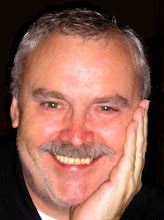Maslow, McGregor and Hertzberg are famed for Hierarchies, Theory X and Y and ‘factors’ Hygiene and Motivation.
They are all heavy reading, a mixture of research, analysis, perception, intuition and revelation. I know that many others and I found it difficult to apply their theories to practical Management situations. Slowly, you realise that motivation is individual and contingent.
Everybody is different, and different things motivate the same person in different situations.
The expression ‘Appropriate Motivation’ best describes the motivation, which enables an individual to achieve a specific task by a particular method, at a particular time.
“Gaining a self funded Masters Degree by part-time distance learning, while being in a full time job is distinct from accepting a Company sponsored full time MBA course during a sabbatical year.
The desired for the outcome may be the same, but the daily motivation is different.”
The last decade, through Cognitive Behavioural Psychology and the use of fMRI have given deep insights into Motivation. Addiction, Brands, Compulsive Behaviours, Spontaneous Purchase are all much better understood. The clear winner, theory wise, has been Vroom’s Expectancy Theory. http://en.wikipedia.org/wiki/Victor_Vroom
Intrinsic outcomes, especially Brain Chemistry play a huge part in Motivation.
Let us get Manipulation out of the way; it is the antithesis of Motivation.
Manipulation is getting people to do what you want, regardless of their wants.
It uses coercion, threat, push and has fear as the driver.
Motivation, described by Vroom has expectancy, or HOPE as the driver.
Motivated, I hope to achieve what I want. I put effort in and I hope to get something out.
In addition, what is wanted most of all is feelings: of success, of well being, of recognition.
In practice the mistake Managers make is “Them and Us”.
WE Managers are motivated by high order factors,
THEY the subordinates are motivated by low order factors.
Actually, WE are ALL motivated by HOPE.
The Expectancy of a good outcome or a good feeling.
I am afraid this takes us all back to Ken Blanchard’s One Minute Manager, back to One minute Clear Objectives, One minute Praising (and when appropriate but rare one minute reprimand). It should make us review complex Sales Commission Plans then re-write them in behavioural and outcome terms.
I have to revisit SFA (Sales Force Automation) to review the difficulties uncovered by BMAC’s research. Hackman and Oldham’s Work (or job) Design and Motivation their studies validated by recent CBP studies show that de-Skilling, reduction in Autonomous working and blurring Task Identity will lead to de-motivation and lower productivity, as found in the study.
BMAC has built Applied Models of Motivation for Sales People and Sales Managers.
You can keep hitting them with the big carrot, or you can rebuild a Cash Generating Sales Engine, which is self-motivating and based on HOPE. The BMAC model for the appropriate use and application of Sales Force Automation, based on both Expectancy Model and Job Design Model leads to substantial
productivity increase and brilliant revenue results.



No comments:
Post a Comment